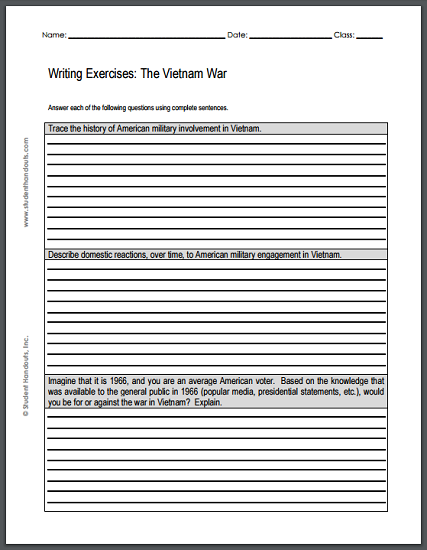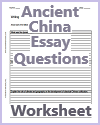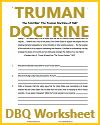| Vietnam War Essay Questions |
|---|
| www.studenthandouts.com ↣ U.S. History ↣ Decades of Change ↣ Worksheets |
| 1. Trace the history of American military involvement in Vietnam. 2. Describe domestic reactions, over time, to American military engagement in Vietnam. 3. Imagine that it is 1966, and you are an average American voter. Based on the knowledge that was available to the general public in 1966 (popular media, presidential statements, etc.), would you be for or against the war in Vietnam? Explain. |
 |
  |
|
Click here to print (PDF file). Answers will vary.
The domestic reactions to American military engagement in Vietnam evolved significantly over time, reflecting a shift from broad support to widespread opposition and profound societal impact. Here's a chronological overview: Early Years (1961-1965): Initial Support: At the outset, there was considerable support for U.S. involvement in Vietnam, rooted in Cold War anti-communist sentiment. The belief that stopping the spread of communism was essential to national security and global stability underpinned this support. Government and Media: The government, under Presidents Kennedy and Johnson, framed the conflict as a necessary fight against communism, and mainstream media generally echoed this narrative, fostering public backing. Escalation (1965-1968): Growing Concerns: As U.S. involvement escalated following the Gulf of Tonkin Resolution and more American troops were deployed, public opinion began to shift. Increasing casualties and the draft led to growing concerns. Emergence of Protest Movements: The first major anti-war demonstrations began in 1965, led by students and peace activists. The Vietnam War became a central issue in the burgeoning counterculture movement. Media Coverage: Graphic media coverage, including televised reports of combat and civilian casualties, started to sway public opinion. The credibility gap between government statements and the reality of the war became apparent. Tet Offensive and Beyond (1968-1973): Turning Point: The Tet Offensive in 1968 was a significant turning point. Although a military failure for the North Vietnamese, its scale and intensity shocked Americans and eroded confidence in government claims of imminent victory. Intensified Opposition: Opposition grew more intense and widespread, encompassing a broader demographic, including mainstream America. Prominent figures, such as Dr. Martin Luther King Jr., spoke out against the war. Political Impact: Public discontent influenced politics, contributing to President Johnson's decision not to seek re-election and to President Nixon's "Vietnamization" policy, aimed at reducing American involvement. Kent State Shooting: The 1970 Kent State shootings, where National Guardsmen killed four students during a protest, further polarized public opinion and intensified anti-war sentiment. Withdrawal and Aftermath (1973-1975): Peace Agreement and Withdrawal: The signing of the Paris Peace Accords in 1973 and the subsequent withdrawal of U.S. troops were met with relief and approval. However, there was also concern for the South Vietnamese allies left behind. Veterans’ Issues: Returning veterans faced a divided reception, with some being treated as heroes and others encountering hostility. Issues such as PTSD and the effects of Agent Orange gained attention. National Reflection: The fall of Saigon in 1975 and the end of the war prompted national reflection. The war left a legacy of skepticism towards government and military interventions, influencing U.S. foreign policy for years to come. Long-Term Impact: Cultural and Political Legacy: The Vietnam War significantly impacted American culture, politics, and society. It spurred changes in media coverage of conflicts, led to reforms in military policies, and influenced subsequent U.S. engagements. Historical Re-evaluation: Over time, the war has been extensively studied and debated, leading to varying interpretations and lessons about military intervention, foreign policy, and public trust in government. In summary, domestic reactions to the Vietnam War evolved from initial support to profound opposition and lasting societal impacts, shaping the U.S. in numerous ways. |
| www.studenthandouts.com ↣ U.S. History ↣ Decades of Change ↣ Worksheets |










